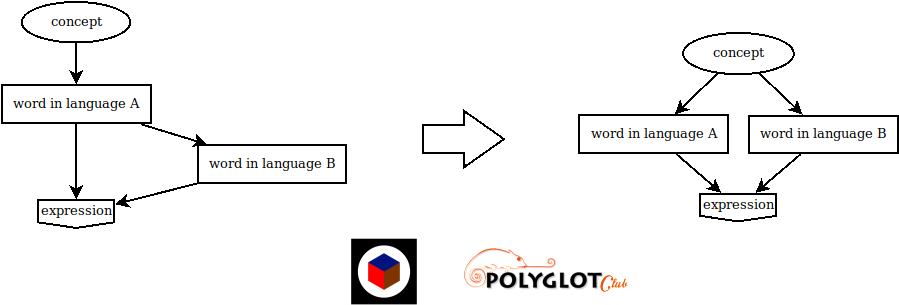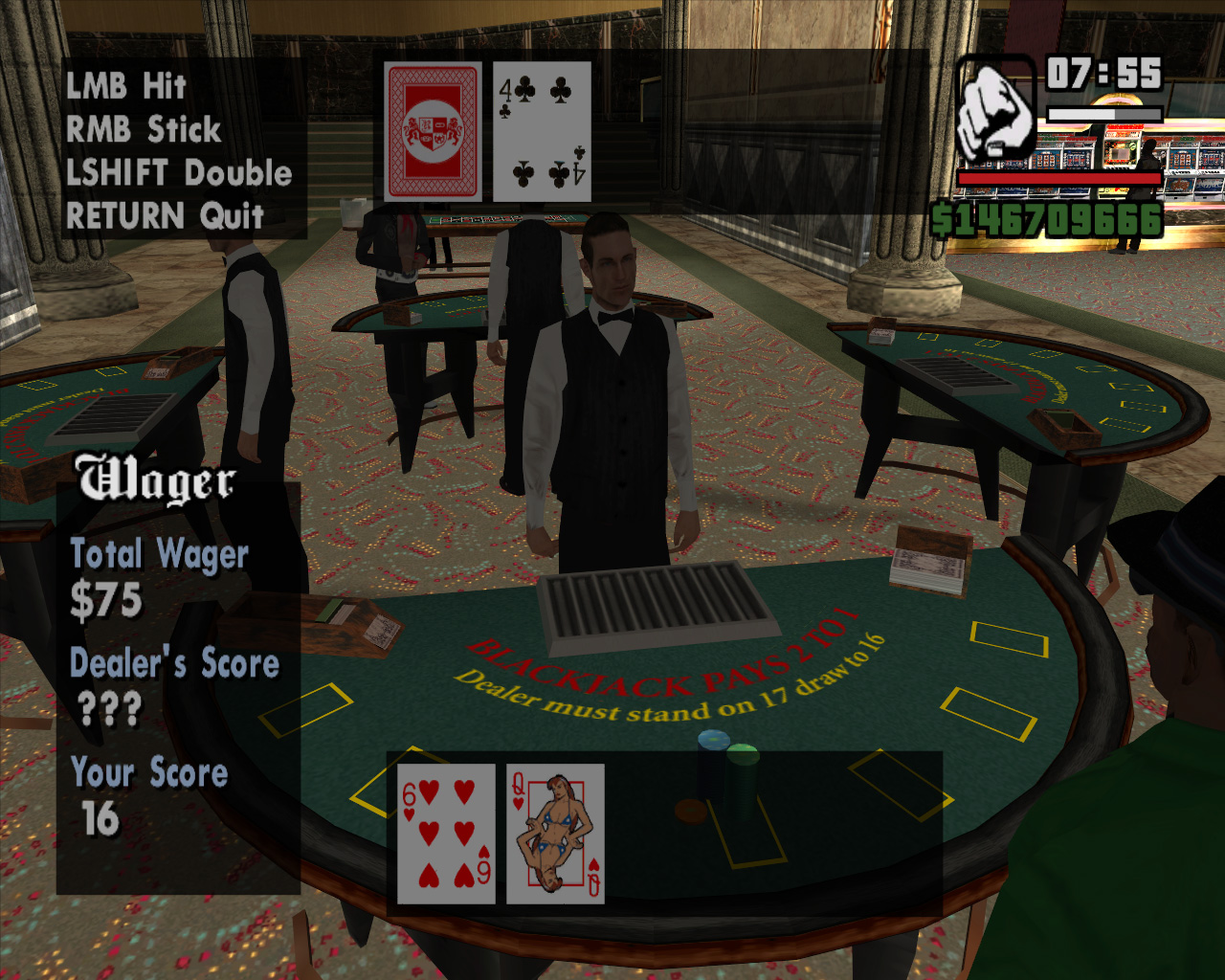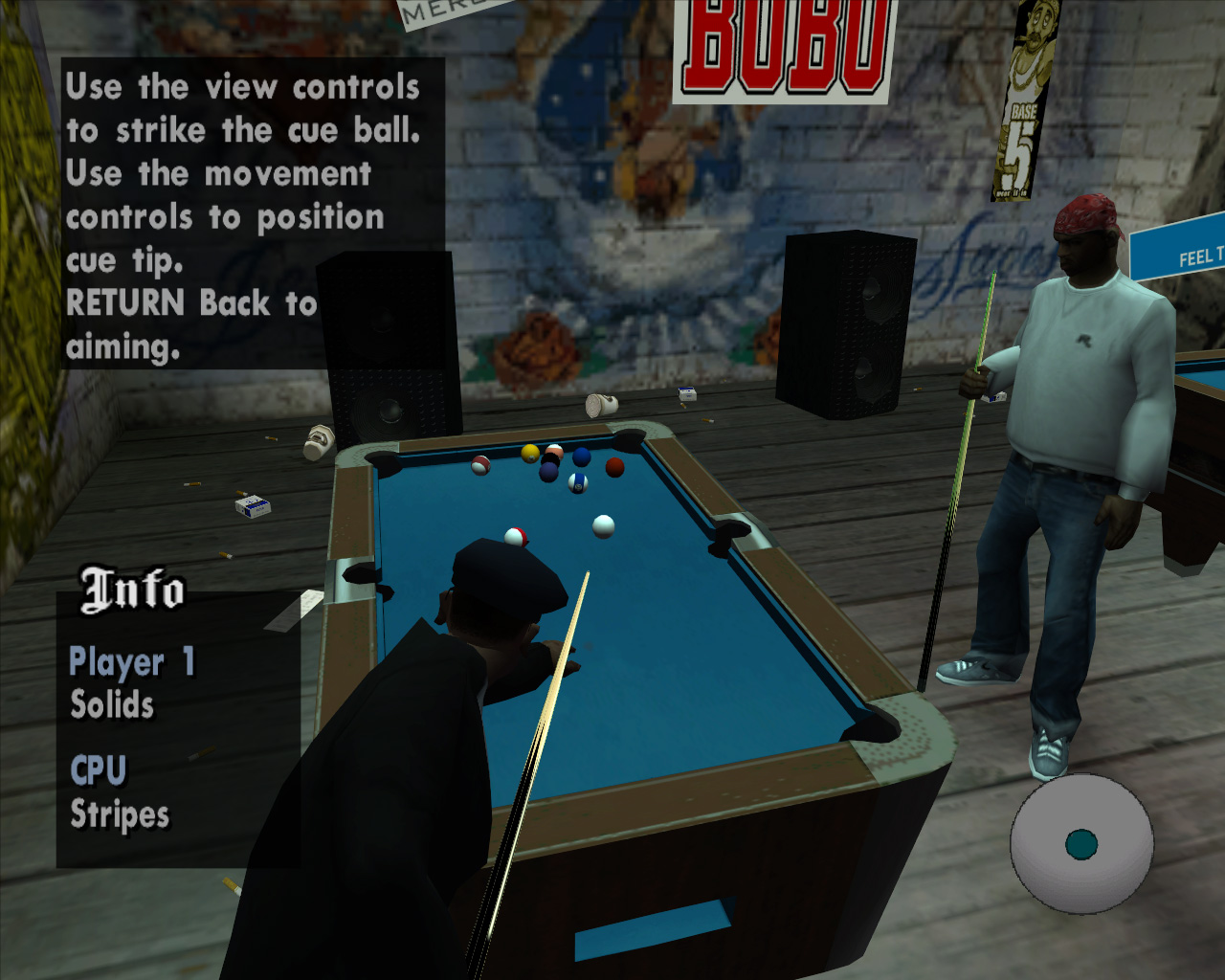Difference between revisions of "Language/Multiple-languages/Culture/How-to-become-a-polyglot"
| (708 intermediate revisions by 4 users not shown) | |||
| Line 1: | Line 1: | ||
[[File:1_gOfBY31x1Zb_tLzVoJkjaQ.jpeg|thumb]] | [[File:1_gOfBY31x1Zb_tLzVoJkjaQ.jpeg|thumb]] | ||
Welcome to the page on "How to become a polyglot". Polyglot is a term used to describe someone who can speak multiple languages fluently. The ability to speak several languages not only opens doors to new cultures and communities, but it also provides numerous personal and professional benefits. If you have always been fascinated by different languages and cultures, and you have a desire to learn, then becoming a polyglot might be for you. In this page, you will find practical tips and strategies to help you achieve your goal of speaking multiple languages. From setting realistic goals, to finding the right learning methods, to immersing yourself in the language, we will cover it all. | |||
Learning a language is the discovery of a new world, and polyglots can connect their minds to each of these worlds. Do you want to become a polyglot but don't know how to achieve this goal? This article will give you valuable tips on how to start this journey on the right foot. | |||
Whether you're a beginner or already on your polyglot journey, this page will provide you with valuable insights and inspiration to help you become a confident, multi-lingual speaker. So, let's get started! | |||
== Learning Languages == | |||
=== Necessity === | |||
Someday, with the artificial intelligence, people will not need to learn any foreign language. Is that true? | |||
Here is the argument from me: | |||
If | If you were visiting a sick friend at a hospital, you would care for the one you visit and not other patients. This is because of your familiarity with your friend, which affects you mentally. Likewise, your proficiency in a language can determine your ability to perceive the speakers' minds, vice versa. | ||
= | Please try watching [https://www.youtube.com/playlist?list=PL4F981418ED7354E3 videos about Sid Meier's Civilization V leaders], you would find that only those who speak the language you know can touch your soul. | ||
This is what the artificial intelligence can't help you with. A language is more than a means of communication. | |||
If humans were always depending on the artificial intelligence, we would lose our value. | |||
=== Knowing Yourself === | |||
You may have discovered such facts: It is easier for children than adults to hear crickets. This is because younger people can hear sounds in higher frequency. | |||
You can have a better idea what to do after knowing your own advantages and disadvantages. As for me, I have found out that my reaction is slower than normal people. That explains why I was left behind after changing a mathematics teacher in primary school. | |||
There are different [https://cft.vanderbilt.edu/guides-sub-pages/learning-styles-preferences/ learning styles]. You can try to find out which type you are and make your plans accordingly. | |||
Having a comprehensive understanding of your physical ability is what the owner of yourself should do. | |||
Do not underestimate yourself. Some people can recall thousands of trading cards, but find it difficult to learn thousands of words. | |||
== | === Motivation === | ||
Why do you want to learn languages? It's a basic question, but it will determine the upper limit of your language proficiency. | |||
If you | * If you mainly feel bored and want to do something in your spare time, then you could be a beginner forever. You just want to pass the time, while learning a language can be boring at the intermediate level and requires effort. Thus, you probably can't make real progress. | ||
* If you mainly want to get a better job, then you can develop useful skills, but nothing more. Your goal is just centred around practical skills, so you will not dig into the languages and explore the culture of their speakers. | |||
If you | * If you are mainly forced by other people, then it's a pity. I don't know how much progress you can make because it is mainly determined by your own attitude. There are many ways to incite people to learn languages, coercing is the worst of all. | ||
* If you mainly want to understand the world, make friends and can seriously spend time on it, then you may become a descent polyglot. | |||
=== | === Choice of Languages === | ||
Which languages do you want to learn? You may consider the easiest ones, the hardest ones, the well-known ones, the rarely-known ones. It is all up to you. | |||
If you ask me, my opinions: the most influential languages in the world; the most influential languages with close relation to my native languages; my preferences. | |||
You can try [https://tokipona.org/ Toki Pona], which is designed to be as simple as possible, starting with [https://www.youtube.com/watch?v=2EZihKCB9iw a video introduction]. You can also try [https://lojban.org/ Lojban], which is designed to be as precise as possible, starting with [https://www.youtube.com/watch?v=KgxOrTvpWJ4 a video introduction]. You will see what the skeleton of a language looks like. | |||
You may be awed by ancient languages and don't want to touch them. In fact, their vocabulary sizes are much smaller than those of modern languages, due to the low productivity at those time. After reading ancient texts, you may gain deeper insights of a culture. | |||
Many languages have a lot of loanwords, which means that if you know the languages being borrowed, you can learn the vocabulary in the borrowing languages quickly. | |||
You will also need to know how long it takes to learn a language. There is [https://www.rocketlanguages.com/blog/how-long-does-it-take-to-learn-a-language/ an article on it]. | |||
If you want to learn two similar languages, compare their learning materials. If one of them is more completed, start from that one. | |||
=== Perspective === | |||
Just pretend that you have forgotten how to speak. You will start to wonder how you can express your thoughts, like how to indicate yourself, other people or objects (pronouns and nouns), how to indicate an activity (verb and verb phrase), how to describe your observation towards specific objects (adjective), how to distinguish things happened, things happening and things to happen (tenses), etc.. So you have to accept the new way thoroughly. Gradually, you can manage to think and express yourself directly in the language you are learning. | |||
[[File:concept to expression.png]] | |||
== Logic == | === Logic === | ||
Logic is important. It is required not only in reading or listening comprehension, but also in daily life. It is life-changing and definitely deserves to be taught in elementary school, but the rulers don't want you to be smart. | |||
<img width=400 src="https://i.imgur.com/li4rVId.jpg"> | |||
Example: In German, the masculine singular nominative article is “der”. If “der” appears in a German text, it | Example: In German, the masculine singular nominative article is “der”. If “der” appears in a German text, it looks like a masculine singular nominative article, sounds like a masculine singular nominative article, then it is masculine singular nominative article. Right? | ||
In logic, it can be written in syllogism: | In logic, it can be written in syllogism: | ||
| Line 74: | Line 75: | ||
# The word in the German text is German masculine singular nominative definite article. | # The word in the German text is German masculine singular nominative definite article. | ||
This fallacy is called “[https:// | This fallacy is called “[https://philosophy.lander.edu/logic/middle_fall.html undistributed middle]”. It is a basic one of [https://utminers.utep.edu/omwilliamson/ENGL1311/fallacies.htm many]. | ||
In reading or listening comprehension, if the text mentioning about one's writing habit is merely “He writes with his left hand” and the question is “Does he write with his right hand”, the logical answer is “I don't know”. | |||
To practice critical thinking in a fun way, you can try to dig into the stories of fictions. An example is [https://www.youtube.com/watch?v=I9puNdLVoz4 GTA San Andreas - In-Depth Analysis of Ryder]. | |||
If you are still not determined to learn logic, let me try once more: It slows your brain's ageing. | |||
=== Mistakes === | |||
Everyone makes mistakes and repeat mistakes. | |||
The impression plays a big roll. By reducing the memory of mistakes, they will be easily spotted, like hearing “a apple” after always hearing “an apple”. | |||
In the ideal situation, when you make a mistake, you will get noticed instantly. You can try this with the artificial intelligence. | |||
Similarly, if people consume fake news about foreign countries continuously, those untrue ideas will root in their minds, just like the Bermuda Triangle. Without instant refutation, they will still believe them, even if they clearly know that those media can lie on anything. | |||
If | If you keep a log of your mistakes and their types, they would be prevented easier. | ||
=== Methods and Experiences === | |||
Both the coach and the athlete are what you need to be. | |||
As a coach, you should make plans that suit yourself; As an athlete, you should do enough exercise according to the plan. | |||
Do not rely on the “word of the day”, do not trust advertisements like Duolingo's. If you are a beginner, anything feels working for you, but you can eventually find out that they are just illusions. | |||
You may have heard this: you will succeed as long as you work hard. This is a trap. You also need good methods. | |||
There are generally two approaches in language learning: one is learning vocabulary and grammar systematically and then do reading, listening, writing, speaking, like being a car mechanic first and then learn driving; the other is learning without learning vocabulary and grammar systematically and learn only through reading, listening, writing, speaking, like being a driver without the knowledge of car mechanics. | |||
There are articles online on how to improve your memory, how to improve your concentration, etc. They are just some advice. Whether following or not is upon yourself. | |||
Good scheduling is essential. Here are some points to take care of: | |||
* effective activities during different periods of a day: [https://www.businessinsider.com/the-best-time-of-day-to-do-different-types-of-tasks-2017-4 an article] and [https://www.headwaycapital.com/blog/peak-time-day-do-everything-business-backed-science/ a picture]; | |||
* forgetting curve: [https://www.mindtools.com/pages/article/forgetting-curve.htm an article]; | |||
* pomodoro technique: [https://todoist.com/productivity-methods/pomodoro-technique an article], among others including the 52–17 rule: [https://focusbox.io/blog/what-is-the-52-17-rule/ an article]. | |||
* active and passive learning: [https://www.lifehack.org/858084/passive-learning an article]. | |||
Avoid learning easy-to-confuse things at the same time. You need to get familiar with the more frequently used one and ignore the other for a while. | |||
Don't be afraid to ask “silly” questions. I have met people asking this question as well as myself: a cliché of fictions is that a character's last words are never fully spoken; so if the character had spoken in the language with a different word order, would that be different, like saying the murderer's name before he dies? After finding the solution to this, I learned more than what textbooks told me. | |||
Basic linguistic knowledge can provide you a better understanding. There is [https://www.youtube.com/playlist?list=PLDDGPdw7e6Ah0e9VYg6ejkS4jRLKB2b2J a playlist]. | |||
https://upload.wikimedia.org/wikipedia/commons/thumb/0/0f/Toshogu_Three_Monkeys_Restored_2024_Crop.jpg/640px-Toshogu_Three_Monkeys_Restored_2024_Crop.jpg | |||
([https://symbolsage.com/three-wise-monkeys/ Three monkeys]: best practices for learning nothing; wisdom of keeping ignorant) | |||
=== Resources === | |||
If you have good tools, you will do your work better. | |||
https://polyglotclub.com/wiki/Language/Multiple-languages/Culture/Internet-resources-for-polyglots | |||
=== Essential Terms === | |||
When you understand their meanings, you won't be frustrated by encountering unfamiliar terms from time to time. | |||
https://polyglotclub.com/wiki/Language/Multiple-languages/Vocabulary/Must%E2%80%90Know-Words-for-Polyglots | |||
=== Pronunciation === | |||
This is where you see how much your native experience is comparing to all possibilities of the human. | |||
International Phonetic Alphabet is the widely-adopted solution to represent all those sounds. It is not hard to learn, if you know the structure of the oral cavity. | |||
Here are the pages to visit: | |||
* [https://www.internationalphoneticassociation.org/IPAcharts/IPA_chart_orig/IPA_charts_E.html IPA chart in English] | |||
* [https://www.internationalphoneticassociation.org/IPAcharts/IPA_chart_trans/IPA_charts_T.html IPA chart in other languages] | |||
* [https://www.internationalphoneticassociation.org/IPAcharts/inter_chart_2018/IPA_2018.html interactive IPA chart] | |||
* [https://commons.wikimedia.org/wiki/File:Places_of_articulation.svg places of articulation for consonants] | |||
* [https://commons.wikimedia.org/wiki/Category:SVG_black_articulation_place_diagrams places of articulation for individual consonants] | |||
* [https://commons.wikimedia.org/wiki/File:Cardinal_vowel_tongue_position.png places of articulation for individual vowels] | |||
There is a transformation from something continuous to something discret. When you pronounce two sounds, your muscle moves continuously, passing through infinite positions, but when it comes to the symbol representation, it's simply from one to another. The boundary for those two sounds can be unclear, which may lead to confusions while learning, i.e. they sound the same to you at their boundary. | |||
If you find it hard to tell the difference among types of sounds, then you can try to pronounce very slowly (trills may require higher minimal volumes of airflow to be pronounced, i.e. cannot be pronounced too slowly), and repeat them multiple times, each time a little faster. | |||
To better experience the differences of similar sounds, try “minimal pairs” on video websites. | |||
When dealing with sound changes, you might feel it hard to memorise their rules. Native speakers commit such changes because they tend to be lazy. You can just let it happen: ignore sound change rules and just pronounce what it “should have been”, repeat it faster. You will naturally understand why sound changes happen. | |||
=== Vocabulary === | |||
If you are not determined to spend time on memorising vocabulary, you would be unable to speak the language freely. | |||
Don't expect to memorise the vocabulary once and for all, prepare to review every word you've met, multiple times. That is what the forgetting curve has revealed. There is a little tip that people should have learned in primary schools: read the word 3 times, then read its meaning 1 time. Your confidence will grow following the growth of your vocabulary. | |||
==== Meanings ==== | |||
A word may have different meanings. It is the context that determines which one it is in the specific case. | |||
If they are not distinguished clearly, then misunderstandings will follow. For example, the word “materialism” has two meanings: philosophical belief that the world is made of physical materials, in contrary to “idealism”; desire of possessing material wealth, in contrary to “spirituality”. Some people mix them up on purpuse and blame irreligious people for being greedy. | |||
https:// | {| class="wikitable" | ||
|arcade | |||
| | |||
<img width=200 src=https://img.wikia.nocookie.net/gtawiki/images/0/03/TenGreenBottles-GTASA-Ganton-exterior.jpg> | |||
<img width=100 src=https://img.wikia.nocookie.net/gtawiki/images/9/9d/GoGoSpaceMonkey-GTASA-cabinet.jpg> | |||
|- | |||
|cabin | |||
| | |||
<img width=200 src=https://img.wikia.nocookie.net/gtawiki/images/2/2b/MountChiliadCabin-GTASA.png> | |||
<img width=200 src=https://img.wikia.nocookie.net/gtawiki/images/0/00/Shamal-GTASA-interior-rear.jpg> | |||
|- | |||
|dealer | |||
| | |||
<img width=200 src=https://img.wikia.nocookie.net/gtawiki/images/2/20/CrackDealers-GTASA.jpg> | |||
<img width=200 src=https://img.wikia.nocookie.net/gtawiki/images/5/53/Blackjack-GTASA.jpg> | |||
|- | |||
|pickup | |||
| | |||
<img width=200 src=https://img.wikia.nocookie.net/gtawiki/images/0/03/Oysters-GTASA-Locations-45.png> | |||
<img width=200 src=https://img.wikia.nocookie.net/gtawiki/images/9/95/Bobcat-GTASA-DirtyBed.png> | |||
|- | |||
|pool | |||
| | |||
<img width=200 src=https://img.wikia.nocookie.net/gtawiki/images/5/5b/Pool-GTASA-strikingthecueball.jpg> | |||
<img width=200 src=https://img.wikia.nocookie.net/gtawiki/images/b/b3/MaddDogg%27sCrib-GTASA-indoorpool.jpg> | |||
|- | |||
|tag | |||
| | |||
<img width=200 src=https://img.wikia.nocookie.net/gtawiki/images/7/78/Tag4.jpg> | |||
<img width=200 src=https://img.wikia.nocookie.net/gtawiki/images/1/10/CustomLicense-GTASA-A2TMFK.jpg> | |||
|- | |||
|tank | |||
| | |||
<img width=200 src=https://img.wikia.nocookie.net/gtawiki/images/d/d4/KACC-GTASA-40.jpg> | |||
<img width=200 src=https://img.wikia.nocookie.net/gtawiki/images/f/ff/Rhino-GTASA-front.jpg> | |||
|- | |||
|trailer | |||
| | |||
<img width=200 src=https://img.wikia.nocookie.net/gtawiki/images/2/20/AngelPineSavePoint-GTASA.png> | |||
<img width=200 src=https://img.wikia.nocookie.net/gtawiki/images/8/81/PetrolTruck-GTASA-front.jpg> | |||
|} | |||
Words in two languages are not always one-to-one correspondent. Even if two words in two languages have the same meanings, their usages and frequencies can still be different. | |||
==== Entirety ==== | |||
As an entirety, a word or phrase often has a different meaning from the sum of its components. It can be noticed how different meanings of “few”, “a few” and “a fair few” are. | |||
==== Wordlist ==== | |||
A quickstart: try the [https://en.wiktionary.org/wiki/Appendix:Swadesh_lists Swadesh list]. | |||
According to [https://wordcounter.io/blog/how-many-words-does-the-average-person-know/ Word Counter], you need to know around 40 000 (uninflected) words to reach a native speaker's vocabulary level. Assuming that [https://innerself.com/personal/happiness-and-self-help/life-changes/16581-the-law-of-the-vital-few.html the law of the vital few] can be applied here, you need to master about 8000 words to communicate fluently. | |||
To build your vocabulary, you can follow this way visit [https://en.wiktionary.org/wiki/Wiktionary:Frequency_lists the frequency list], find words that you are unfamiliar with, create your own flashcards and practise. | |||
==== Dictionary ==== | |||
If you know the basic knowledge in the set theory, you may have a better understanding. For each entry in a bilingual dictionary, there are multiple items listed by numbers; in each item, there are multiple phrases used to explain the meaning, being separated by commas or semicolons. All the meanings of a word is {the union of {{the intersection of the phrases} of each item}}. | |||
How to choose a dictionary? First, see their reputations; second, see what you need: | |||
* if you are a beginner of the language, then a dictionary with 5 000 – 10 000 entries is enough for your current level; | |||
* if you want to use for daily life, then a dictionary with 30 000 – 50 000 entries is enough; | |||
* if you want the words as many as possible, then buy the thickest one, which usually have more than 100 000 entries. | |||
A good dictionary should be able to explain a word with words that are more basic. This is what Wiktionary English entries fail to do. | |||
https:// | There is [https://www.icaltefl.com/choosing-a-good-dictionary/ an article] on how to choose a dictionary. | ||
You may want to memorise all words in a dictionary. Before that, make sure you have already had a good command of basic words, so can build your confidence before touching higher levels. | |||
If you think you should obey the dictionaries, you've got yourself wrong. Do not worship the authority. Why are they authoritative? Because they can tell the reality. If they are distorting it, their authority is not to be recognised. | |||
On the other hand, if there are too many deviations, then the language will be in chaos. An authority is required to regulate the use of the language and determine what are the reasonable. | |||
==== Etymology ==== | |||
Some materials tell you to memorise words with some interesting homonyms in your native language. This is superficial and won't help you to understand its underlying structure. Maybe it is effective, however, it also has a side effect: when using these words, you can't get rid of that funny stuff in your mind. | |||
Word roots and affixes deserve their attention. Wiktionary has the “Etymology” section for many words in several languages. This helps you to understand why a word exists in its current form. | |||
You may know the components of a word and guess what a word means. This guess is not always correct. An example is “physician” and “physicist”. Their meanings are determined by the the native people. | |||
<img width=1200 src=https://www.worldhistory.org/uploads/images/14112.png> | |||
==== Adposition ==== | |||
Adpositions are hard to master. For example, English beginners are usually confused about the use of “[https://en.wiktionary.org/wiki/on#Preposition on]”, “[https://en.wiktionary.org/wiki/in#Preposition in]”, “[https://en.wiktionary.org/wiki/at#Preposition at]”. Then you can consult a dictionary. You may find more than 10 meanings of such a word. | |||
You can see which adpositions have similar meanings, and pay attention to the subtle differences in their usages when you are reading. | |||
==== Collocation ==== | |||
For example, it's natural to say “speak a language fluently” and “run a program smoothly” but unnatural to say “speak a language smoothly” and “run a program fluently”. A sentence with a wrong collocation is just like a wrongly buttoned shirt. | |||
Again, a large amount of reading and listening is required. | |||
==== Number ==== | |||
When you learn numbers, you only know the rules for reading numbers, instead of knowing each number, because the numbers are too many. Practice makes perfect. | |||
=== | === Flashcard === | ||
How to create flashcards to learn efficiently? | |||
Meanings should be on the front side, word/phrase should be on the back side. When you see the meaning, you will recall the word/phrase, in a process like this: words/phrases in the learned language → concept → words/phrases in the target language. This helps with your expression instead of recognition only, as well as recalling synonyms. | |||
Meanings should be brief. You can search a word in a dictionary, pick the first meaning and if any other meaning is significantly different from it, pick them as well. Don't write too much on flashcards. You will remember those meanings that are derived from its original one through reading instead of flashcard memorisation. | |||
In a flashcard program, there are efficiency levels to choose from when the back side is revealed. How to choose from them? In my opinion, according to [https://virtualspeech.com/blog/average-speaking-rate-words-per-minute the average speaking rate], recognising the word in less than 1/4 seconds for “easy”, 1/4 ~ 1/3 seconds for “good”, 1/3 ~ 1/2 seconds for “bad”, more than 1/2 seconds for “again”. You can use a metronome to understand how long it is. | |||
If you feel bored practising flashcards, try listening to instrumental music in the background. | |||
=== Sentence === | |||
==== Parse Tree ==== | |||
To express your idea, you need words of different parts of speech placed in the correct order. That is to say, you need to know the structure of sentences. You can say you really know what a sentence means only when you know which part is playing which role. You can get to know the “[https://en.wikipedia.org/wiki/Parse_tree parse tree]”, try to draw them. There is [https://www.youtube.com/watch?v=CVUPNb2908k a video about how to draw parse trees]. | |||
https:// | https://upload.wikimedia.org/wikipedia/commons/thumb/2/2c/Buffalo_sentence_1_parse_tree.svg/640px-Buffalo_sentence_1_parse_tree.svg.png | ||
([https://en.wikipedia.org/wiki/Buffalo_buffalo_Buffalo_buffalo_buffalo_buffalo_Buffalo_buffalo Buffalo buffalo Buffalo buffalo buffalo buffalo Buffalo buffalo]) | |||
It would be | ==== Proverbs and Idioms ==== | ||
Proverbs are not instantly understood if translated into another language word by word; idioms are almost exclusive to the language. It would be a real joke if you translate “[https://idioms.thefreedictionary.com/It%27s+Greek+to+me it's Greek to me]” into Greek word by word. | |||
=== | ==== Ambiguity ==== | ||
It is almost impossible to avoid ambiguities in natural languages. They exist almost everywhere. There is [https://www.yourdictionary.com/articles/examples-ambiguity-language-literature an article] on it. | |||
Usually people are accustomed to comprehend it in a particular way, so that they can efficiently ignore other possible interpretations than the common one. | |||
Sometimes ambiguities are utilised to create [https://www.yourdictionary.com/articles/funny-puns-jokes-examples puns]. | |||
==== Sound natural ==== | |||
When it comes to formulating sentences, sometimes you do it correctly in grammar, but native speakers find it unnatural. The reason is that there may be multiple possible ways to express an idea and the unnatural one is not commonly used. Being correct in grammar is just a necessary condition for formulating naturally. | |||
For example, if you feel hungry, people usually say in English “I am hungry”, a subject-copula-predicative structure; in German, “Ich habe Hunger”, a subject-verb-object structure; in Korean, “배고파” or “배고픕니다”, a conjugated verb in plain or humble form. You may use uncommon structures, but people won't immediately understand. This is why you need to read and listen a lot, even if you are already good at the language's grammar. | |||
One thing similar to this is different factions with different technology trees in a strategy game. Those systems differ from each other and all do the same work. | |||
When finding example sentences to practice, pick those ones, the structures of which are different from their counterparts in your learned language, as they are more valuable for you. | |||
To formulate like a native speaker, use a service that contains example sentences in parallel texts e.g. [https://www.linguee.com/ Linguee] and [https://context.reverso.net/ Reverso Context], try find a sentence in the language you know, try to translate it naturally, then see the translation by the native speaker. | |||
=== Materials === | |||
Native speakers can make mistakes from time to time. As for English, there are also a lot of non-native speakers making all kinds of mistakes on the Internet. As a result, choosing the right material to read is important. | |||
You may read books available in many languages, where your learned language and your language being learned are included. Among those books, children-oriented books, such as fables and fairy tales, are easy to read. | |||
In the old days, people learn a language by reading newspaper, listening to radio and watching television, because their use of the language is professional. Nowadays, with the emerge of the social media, people have known them better, and they have earned their titles around the world: “lamestream media”, «terminales mediáticas», « merdias », „Lügenpresse“, ”valemedia”, 「霉體」, “기레기”, 「マスゴミ」, etc. | |||
<blockquote> | <blockquote> | ||
"Once a decent man, but now "MARK TWAIN, I. P., M. T., B. S., D. T., F. C., and L. E." | |||
– ''[https://en.wikisource.org/wiki/Running_for_Governor Running for Governor]'' | |||
– ''[https:// | |||
</blockquote> | </blockquote> | ||
The word “media” here means not only news media, but media of any kind, including education and entertainment. They influence people oftentimes in subtle ways. Sometimes you find a material where one article teaches you not to believe conspiracy theories, another article is about a new breakthrough in the development of the brain-computer interface. | |||
To learn advanced vocabulary, you can try reading books that have been reviewed by many different people. | |||
If your time is short, you may go to social media. Those platforms impose censorships and manipulate algorithms, while shills and bots are also doing their job. Normal people also practise their own [https://bookanalysis.com/1984/two-minutes-hate/ Two Minutes Hate] there. As a result, you may lose your path with your time wasted and get ill-tempered eventually. Those content creators impassioned for justice are also friends to money. However, in some cases, you can find valuable information on those platforms exclusively, as they at least provide an approach for people to speak. | |||
Public opinion is always manipulable. In the People's Republic of China, India is a rival and Pakistan is a crucial partner to access the oil from West Asia, so the media portray Indians poor, arrogant and full of fraudsters while not doing so on Pakistanis in the 2010s. In the United States of America, the public opinion towards Japanese was extremely negative during the 1940s and 1980s, when Japan militarily and economically threatened the United States of America; and it was positive in the 1960s and 2000s, when Japan was a crucial partner for the USA to control Asia-Pacific region. | |||
Your domestic media alone is not enough for you, because the bias can exist nationwide. Propaganda outlets of the PRC won't admit that geniuses achieving their success in the USA is attributed to individualism, while propaganda outlets of the USA won't admit that disaster reliefs being quickly provided in the PRC is attributed to collectivism. | |||
There are two military terms: “hybrid warfare” proposed in the USA and “unrestricted warfare” proposed in the PRC. It is not a secret and we need to be aware that we are inevitably involved in constant struggles among powers. | |||
=== Reading === | |||
When you are reading, you may want to read every word through your mouth, which limits your speed. Your elementary school teacher may order you to do so. It is inappropriate when you are already a teenager, as you can already read line by line. Of course, speed is secondary comparing to comprehending the idea behind the text. | |||
Reading aloud and reciting also have their own benefits: deepen your impression of the sentence structures. | |||
=== Listening === | |||
According to the [https://virtualspeech.com/blog/average-speaking-rate-words-per-minute average speaking rate], you normally need to recall 3 words, including their denotations and connotations each second, in English. In languages like Chinese, where a word can be represented by fewer syllables, you need to recall words even faster. You also need to pay attention to the syntax, otherwise you wouldn't see the forest for the trees. | |||
Keep listening to audios that you can understand. After a while, you can predict the word when hearing its first syllables in a sentence. | |||
Listening materials can be found at video websites like YouTube. There are videos like “1000 words”, “500 phrases” to try, like in [https://www.youtube.com/channel/UCTYQzAi6YOcgv2mkzsfzmpA Kendra's Language School]. | |||
Proper names in the listening material, unless known, should be avoided as much as possible. | |||
When you listen to songs, keep in mind that not every song's lyrics are grammatically correct, and not every singer's pronunciation is standard. | |||
Speech recognition services can help, if you find it hard to understand something. | |||
You may also do it manually by following these steps: | |||
# Slow down the recording | |||
# Recognise each syllable | |||
# Recognise each word | |||
Try some similar phonemes, such as [m] for your recognized [n], [t] for your recognised [ʔ]; maybe you have recognised an open syllable as a closed syllable; maybe the vowel is not pronounced clearly, then you should try to recall all words with the same consonants before and after it. | |||
=== Reality === | |||
You may have a nice score in an exam, but it doesn't mean that you can wield the language as you wish. It is probably not taught on the textbook, but in real life, that English words “interesting” is used to debase and “sick” is used to praise. Many people feel confident until they go abroad. They just don't know how to express instantly and precisely in diverse situations, in real life. | |||
There are people working on language learning with virtual reality. There is [https://www.fluentu.com/blog/learn/vr-language-learning/ an article] on it. | |||
== Viewing Cultures and Civilisations == | |||
When I was a kid, I knew almost nothing and found that everything was attractive. I thought foreigners could float in the air. Now my horizon is opened, and I've everything is losing its splendour as I get more and more familiar with it. The exotic feelings vanished. | |||
There is no simple way to describe a culture. You may heard that East Asian and South Asian philosophies places more value on the variability, while West Asian and European philosophies place more value on steadiness. However, in real life, you can find East Asians and South Asians persisting on archaic moral codes, while West Asians and Europeans possessing flexible moral standards. What you need to do is to experience those beyond simple language yourself. | |||
Before and after watching a show, you will have different feelings towards its posters. Watching others play an action or strategy game is greatly different than playing it yourself. | |||
=== | === Difference between Civilisation and Culture === | ||
These two words are often confused as they are defined differently. There are still much common ground among those definitions: “civilisation” tends to be about achievements, while “culture” tends to be about aspects of life. | |||
=== Prejudice === | |||
A simple question: how do you form your impressions towards foreigners? | |||
A simple answer: from news, videos, TV shows, movies, stories and those I sometimes see in town. | |||
=== Group and Individuals === | |||
People say that birds of the same feather flock together. That feather can be anything that one can possess, being used to form an exclusivity from everyone else. | |||
In an oversimplified view, an entity made up by multiple people is represented as a person. People assume that a group behaves like a person. One of examples is the national personification, which is a product of nationalism, where a nation is represented by a beautiful woman or a ball with eyes or something else with schizophrenia. | |||
In fact, a group's behaviour is different than a person. Different members of the group pursuit after different interests, and they all more or less represent the group, while a person pursuits after the person's own interests only. | |||
=== Diversity === | |||
Cultures are largely different. Even in a city, different districts have different cultures. Meanwhile, cultures are also largely the same: kids play together and make trouble, advertisements are overwhelming you, the injured tries to find the hospital, the pension system is a swindle. | |||
Cultures are so diverse that they are not all compatible with each other, just like that not any random people can be friends. You may strongly oppose some ideas in another culture. You may speak it out, however, you should try your best to avoid doing so in a rude way. | |||
<img width=400 src=https://i.imgur.com/Fb0FMOJ.jpg> | |||
Some people say that they want to restore their traditions. However, in the long history, there are so many versions of their traditions, which are not compatible with each other. Which one to return to? One thing is clear: the most prominent ones fit their time periods. | |||
A culture is a collection of norms for different aspects of life. Each of those aspects is like a curtain. They are neither always fully open nor always fully closed, but stay in a position that fits its use. But those aspects of life is more complicated: they cannot easily change without changing other aspects, like balls in a ball pit. | |||
Salespersons tend to believe that all problems are rooted in the lack of trust; researchers tend to believe that all problems are rooted in the lack of money; accountants tend to believe that all problems are rooted in the lack of moderation; cleaners tend to believe that all problems are caused by those people. If everyone can make a concession, there is still enough ground for living in peace. However, no one can guarantee that everyone agrees on the concessions to be made. | |||
You may assume how other people may behave based on their background, but it's just an assumption and can be invalidated. You have to prepare multiple pre-arranged plans for encountering different people. If you treat them with the least optimistic one at the beginning, they can only treat you likewise. Avoid the vicious circle at the first place. | |||
Saying that a nation of people are the same is like saying that all people with the same surname are the same. There are all [https://polyglotclub.com/wiki/Language/Multiple-languages/Culture/Videos-of-Everyday-Life different people on the street]. You can also see [https://polyglotclub.com/wiki/Language/Multiple-languages/Culture/Political-Compass-by-Country the political compass memes] to feel the political diversity of a country, given that you can accept modern arts. | |||
To | It is easy to observe the mass and hard to find out what an individual truly is. Even for the same person, his/her attitude towards one matter can be different, even on the same day. To make a precise conclusion, enough data need to be collected, i.e. communicate with the person frequently. | ||
=== Attitude === | |||
There are a lot of smiling faces, however, the motivations behind showing them can vary: admiration, sense of superiority, mentality to seek novelty, and so on. | |||
After seeing an drama of a different culture, what do the audiences remember? Some remember the makeups because they look like a messed-up kitchen, some remember the vocals because they are similar to moaning in bed, some remember the body movements because they look like those of sufferers of certain diseases. They feel that it is as enjoyable as visiting a zoo. A few people may have focused on the storytelling. | |||
=== Sense of Superiority === | |||
In a modern society, such an instinct is supposed to be suppressed, just like that one is not supposed to fart in public. | |||
If you participate class reunions, you may find it difficult to actually have fun, when you see someone else living better off than you. Just like other instincts, the pursuit after the sense of superiority is natural. It provides people a sense of security. They believe that they are always superior or they will get their superiority back very soon; they try to conceal their fear towards new situations by pretending they are unchallengeable. Not only the uneducated, but also the educated, many of whom pretend to care about cultures around the world and have their own hidden agenda, such as how to prove that other cultures are more barbaric, so they can try to justify anything done to people from other cultures as an attempt to “civilise” them. | |||
The moral superiority is somehow tolerated, as long as one's moral standard keeps consistent. Those people enjoy bullying others without being punished by staying under a righteous cause. However, if one keeps trying to be morally upright all the time, then it becomes real that he/she is upright. | |||
With the development of artificial intelligence, many people are losing their advantages. Under bad economical conditions, people desperately try to find something to prove that they are superior, so desperate that the social order no longer matters. | |||
=== Xenocentrism === | |||
In contrary to the common approach, there is another way to feel superior: identifying oneself as a member of another group that is “superior”. This can be seen in ethnology. | |||
Before | Before the widespread of Internet, there were many articles in developing countries boasting how everything in developed countries is better: when a scientific group defrauds, “they have the power to encourage researches of all kinds”; when an education system failed, “it's crucial to let children always have fun”; when railway infrastructures are outdated, “passengers prefer a slow journey because they enjoy the scenery”; when an employee is bullied, “that is the right way to temper a newcomer”. Stories were also made up, just like some adventure fictions, and because they satisfied people's imagination of a nearly perfect society, they were widespread. | ||
In developed countries, there are also imaginations of stressless life in remote and isolated developing countries. | |||
=== The Whole Picture === | |||
Talking about the living standards, people often admire those modern high-quality ones. However, with more aspects including the birth rate taken into consideration, a conclusion can be drawn: they are not long-lasting. They can either accept immigrants and blend the culture, or reject immigrants and continue to face the population issue. Just like the environmental problem, where they won't be satisfied where there is still room for the environment to restore itself, they won't be satisfied when people have time, money and stamina left to sustain their own two-child families. | |||
When looking for a job, the employers prefer those who are experienced; but without a job, you can hardly become experienced. Similarly, if you haven't understood the whole picture, you can hardly see it from all perspectives. The solution is the same as that job-finding one: accumulate experience on yourself persistently, step by step. | |||
=== Stereotype === | |||
Stereotypes are originally a product of insufficient knowledge and imagination. Many works apply stereotypes to defame other cultures, to provide a sense of superiority to their target audiences. | |||
However, some works are meant to express the impression of another culture from one culture's perspective only, and are not to be that malicious. Examples are the early versions of ''Street Fighter'', where stereotypes are equally applied to everyone, giving an enjoyable exotic feeling to all audiences; ''No One Lives Forever 2'' is also filled with intensive stereotypes and humours; ''Command & Conquer: Red Alert 2'' is also a good example, where designs are all stereotypical, mocking the USSR straightforwardly and the USA subtly; ''Showa American Story'' is another approach: pure stereotypes of Japan and the USA in 1980s to 1990s, in the eyes of people in the PRC. | |||
== | === Cover === | ||
When listening to an idea, the listener tend choose to accept or reject it based on the speaker's background. In such cases, covers are needed to convey the message. | |||
Sometimes you may find a video game depicting one culture and its developers with background of another. If you analyse them, you may find that the ideas behind their stories are rooted in the developer's cultures. Some examples are ''Jade Empire'', ''Assassin's Creed'', ''Demon's Souls'', ''Ghost of Tsushima'', ''Genshin Impact''. This is not limited to video games, but in any form of artwork. | |||
It needs to be noticed that those “cultures” presented are actually the perceptions from another culture. It is somewhat acceptable for an artwork, however, they can be misleading for those who unaware of it. | |||
One of the games depicting a foreign culture authentically is ''Sifu''. Its developers with French culture background integrated Chinese culture in their minds. | |||
=== Geography === | |||
There are impacts of geography direct on human bodies. Indonesia and Amazonas both have tropical rainforest climate, where the night is humid and hot, which means bad sleeping condition and leads to low spirits. | |||
Geography also determines the products an ethnic group can produce. Those who are near waters fish, those who live in forests hunt, those who live on grasslands herd, and so on. There are interactions among ethnic groups, and from the interactions, their cultures evolve. Some ethnic groups control good location for commerce, some ethnic groups control good locations with high military value. All of these can further impact their cultures. Sicily and Afghanistan are both strategical locations, so they both suffered frequent invasions, which forged some common elements in their cultures like self-determination and isolation. | |||
=== History === | |||
If you have the chance to read history textbooks in different sovereign states, you will find out that they are all nationalistic. Just like laws, they represent the will of the current rulers. | |||
It is often seen that people of cultures with long history mock at those of short ones, believing that longer history means more wisdom, even if they are not from Mesopotamia. Are they willing to add Mesopotamian history to their school curriculum? “We should focus on our own history. History keeps repeating itself, so there's no point to pursuit the longest history.” | |||
The history of a region is valued not only by its length, but also for its width, as well as its density. It is up to the learner to draw the boundary of the region to learn or not. For the artificial intelligence, the more accurate past it learns, the more desired future it creates. | |||
=== Social Science === | |||
You may have learned the geography and history of a country, but you still don't totally understand the culture of it. If you have been living in peace all your life, you may find it difficult to understand the mind of people who have gone through tough times. | |||
Sociology and psychology can give you the answer. You can even have a new understanding of your own country. | |||
The society is like the computer: If you live with it for daily tasks as a common person, everything appears in order; if you have deeper knowledge of it, you would find that defects and loopholes are everywhere. | |||
There is an Aesop's fable [https://fablesofaesop.com/the-two-bags.html ''The Two Bags'']: Every man has two bags suspending on his neck, the one at the front is full of the faults of his neighbours, the one at the back is full of the faults of himself. This is why foreigners' opinions are to be taken seriously, even if they don't know much about your life. | |||
You can suffer desperation as you see through the ugly side of most people, and the recovery from it may be difficult. For example, they say “We just hate your leaders, we don't hate common people like you”, then some calamities happen to common people like you, they cheer (2021 floods in Malaysia, 2021 floods in China, 2021 floods in India, 2021 floods in Türkiye, 2021 floods in Europe, etc.). If that doesn't affect you, you can watch the full version of the 2016 film ''Wołyń''. You may lose your confidence in humanity, a price for your curiosity to the world. If there are any extraterrestrial civilisations, those creatures won't behave differently. | |||
== | === Reasonableness === | ||
There is a people Yi, which lived an ancient life before the foundation of the People's Republic of China. In Liángshān, there are Black Yi, the aristocrat, and White Yi, the commoner. The White Yi are more hard-working because of their bad financial situation, and following the rapid development in China, they have gradually accepted the modern lifestyle, while the Black Yi are more willing to stick to their traditions, and are considered less civilised. | |||
There is a people Yi, which lived an ancient life before the foundation of the People's Republic of China. In Liángshān, there are Black Yi, the aristocrat, and White Yi, the commoner. The Black Yi are more educated because of their good financial situation, and following the rapid development in China, they have gradually accepted the modern lifestyle, while the White Yi are more willing to stick to their traditions, and are considered less civilised. | |||
Both paragraphs above sound reasonable. They can't be both true. If you don't keep being critical, you can be duped easily. | |||
There is a famous quote by Lǔ Xùn in his essay [https://zh.wikisource.org/wiki/%E7%84%A1%E8%81%B2%E7%9A%84%E4%B8%AD%E5%9C%8B ''Voiceless China'']: | |||
<blockquote> | |||
The Chinese people's temperament always likes to reconcile and compromise. For example, if you say that this room is too dark and you need to have a window here, no one will allow it. But if you advocate removing the roof, they will come to mediate and be willing to have a window. | |||
</blockquote> | |||
However, one can also say: | |||
<blockquote> | |||
The Chinese people's temperament always likes to radicalise and fanaticise. For example, if one says that this room is too dark and need to have a window here, the other will not allow it. But if that one advocates removing the roof, the other will come to mediate and be willing to have a window. | |||
</blockquote> | |||
=== Genetics === | |||
In 2007, James Watson expressed his worries about Africa's future based on IQ tests to The Sunday Times. He was discharged and was forced to apologise publicly. In the 2019 PBS documentary ''American Masters: Decoding Watson'', he insisted on his original idea. Then he was denounced and was striped from many titles by his old workplace. | |||
That is an obstacle of answering the philosophical question “Who am I?”. If he had praised Africans for their physical competence, saying they are healthier, he would had no trouble. Many people believe it is worth it to prevent the human from obtaining some knowledge. The reality is, biological laboratories studying humans are functioning around the world. People are desperate to live a bit longer, at all costs. The rulers don't want the mass to participate in this topic, because it may drive the public opinions out of their controls. | |||
The distributions of genes are different among ethnic groups, which also applies to different breeds of dog and other species. The important thing is not to deny such differences, but how to face it seriously. | |||
Women can also operate heavy machinery, given that they pay more efforts than men. As long as their skills are qualified, they can do the same tasks. If they have paid efforts to make up for their natural disadvantages, they deserve more-than-normal respects. | |||
=== Ideology === | |||
In the modern time, all kinds of ideologies have been emerging. They are not limited to politics, but every aspect of life. They may simply be used as causes to start a fight that is meaningful if won. They are polytheist deities in secular forms. | |||
https://upload.wikimedia.org/wikipedia/commons/thumb/9/90/Man_In_The_Moon2.png/239px-Man_In_The_Moon2.png | |||
To make sure the conversation on ideologies goes well, you have to first agree on facts, then talk about your opinions. | |||
To stop someone from talking nonsense, the most effective practice is responding in kind. There is [https://sites.pitt.edu/~dash/hodja.html#foodsmell one] of the most popular tales about Nasreddin: A merchant accuses a poor man for smelling his food without paying, and the official doesn't want to offend the merchant, so the official hesitates on what to do; Nasreddin comes by, shakes the poor man's purse, asks if the merchant has received the sound of coins; the merchant confirms, and the case is settled. | |||
If you have to defend yourself, you must avoid attacking irrelevant people, as it invites unwanted hostilities, and try to gain support from the majority. For example, if you were insulted for your nationality by a Frenchman in France, do not offend all French people. You may say “Some Northern and Southern French people enjoy smearing each other, not to mention how they treat foreigners”. Insinuate that words against Frenchmen by Frenchmen exist, instead of speaking those words yourself. It is easier to win with counter-attacks, in martial arts as well as other fields. | |||
Without ingredients, there is no way to cook a meal; without knowledge, there is no way to discuss topics. Avoid emotion agitators, listen to all sides, especially the opposite side of yours, with as much patience as possible, then you will almost certainly experience the [https://www.simplypsychology.org/cognitive-dissonance.html cognitive dissonance], which feels like you have been an idiot until now. If you haven't experienced so, you definitely should try this. The simplest way is to record your own voice and listen to it. | |||
Focus on broadening your experience, so you will be more likely to beat your opponent. After learning much of the world, you would no longer insist on some ideas. You had beaten yourself. | |||
https://upload.wikimedia.org/wikipedia/commons/thumb/e/ed/Medieval_Jain_temple_Anekantavada_doctrine_artwork.jpg/640px-Medieval_Jain_temple_Anekantavada_doctrine_artwork.jpg | |||
([https://americanliterature.com/author/james-baldwin/short-story/the-blind-men-and-the-elephant/ ''Blind Men and the Elephant'']) | |||
=== Nothingness === | |||
There are all kinds of images of happiness floating around you. You are constantly receiving submessages “do this, and you will be happy”. While being busy judging which ones to believe, you may have missed a question to ask: why do they all matter. | |||
People want to live a meaningful life, so they have some placebo when facing the death. Whatever they do, they are trying to struggle against the nothingness. Is this meaningful? Meanings are only applicable to those with life; for the lifeless, everything is nothing. Whatever the human do, it matters to human and doesn't matter to the Earth; whatever a nation of people do, it matters to those people and doesn't matter to the nation. | |||
=== Hope === | |||
As we all see, just like the Renaissance after the Black Death, the pandemic starting from 2019 has also reshaped people's ideas. It is all exposed: politicians, journalists, scientists are funded by the same people; lockdowns were imposed, experimental vaccines were hard sold; the rich became richer, the poor became poorer. For the sake of economy, those absurdities were mostly retracted. This is the same reason why the fishing moratorium exists. | |||
If you impose an ideal moral standard on historical figures, you would find no one that matches it, but we are still living a better life today than in ancient times. If you focus on the positive aspects, you can see progresses still being made. | |||
If you | You will understand that you are always unique, that is to say, you can always feel lonely. It seems that we all can't escape some principles of the world. If you throw something up to the sky, it will fall down to the ground. But with the development of science and technology, breakthroughs can be made. What bother us today may be an obstacle no more tomorrow. | ||
No matter how tragedies repeat, the kindness is not lost in humanity. There is always hope, even though not all people can get there. | |||
<blockquote> | |||
And I have by me, for my comfort, two strange white flowers—shrivelled now, and brown and flat and brittle—to witness that even when mind and strength had gone, gratitude and a mutual tenderness still lived on in the heart of man. | |||
https:// | – ''[https://en.wikisource.org/wiki/The_Time_Machine_(Heinemann_text) The Time Machine]'' | ||
</blockquote> | |||
==Author== | ==Author== | ||
| Line 476: | Line 528: | ||
{{#seo: | {{#seo: | ||
|title=How to become a polyglot in {{CURRENTYEAR}} | |||
|description=In this lesson you will learn some techniques to become a polyglot (a person speaking many languages) | |||
|og:image=https://polyglotclub.com/wiki/images/thumb/a/a4/1_gOfBY31x1Zb_tLzVoJkjaQ.jpeg/450px-1_gOfBY31x1Zb_tLzVoJkjaQ.jpeg | |||
}} | }} | ||
{{other-lessons}} | |||
Latest revision as of 08:12, 4 July 2025
Welcome to the page on "How to become a polyglot". Polyglot is a term used to describe someone who can speak multiple languages fluently. The ability to speak several languages not only opens doors to new cultures and communities, but it also provides numerous personal and professional benefits. If you have always been fascinated by different languages and cultures, and you have a desire to learn, then becoming a polyglot might be for you. In this page, you will find practical tips and strategies to help you achieve your goal of speaking multiple languages. From setting realistic goals, to finding the right learning methods, to immersing yourself in the language, we will cover it all.
Learning a language is the discovery of a new world, and polyglots can connect their minds to each of these worlds. Do you want to become a polyglot but don't know how to achieve this goal? This article will give you valuable tips on how to start this journey on the right foot.
Whether you're a beginner or already on your polyglot journey, this page will provide you with valuable insights and inspiration to help you become a confident, multi-lingual speaker. So, let's get started!
Learning Languages[edit | edit source]
Necessity[edit | edit source]
Someday, with the artificial intelligence, people will not need to learn any foreign language. Is that true?
Here is the argument from me:
If you were visiting a sick friend at a hospital, you would care for the one you visit and not other patients. This is because of your familiarity with your friend, which affects you mentally. Likewise, your proficiency in a language can determine your ability to perceive the speakers' minds, vice versa.
Please try watching videos about Sid Meier's Civilization V leaders, you would find that only those who speak the language you know can touch your soul.
This is what the artificial intelligence can't help you with. A language is more than a means of communication.
If humans were always depending on the artificial intelligence, we would lose our value.
Knowing Yourself[edit | edit source]
You may have discovered such facts: It is easier for children than adults to hear crickets. This is because younger people can hear sounds in higher frequency.
You can have a better idea what to do after knowing your own advantages and disadvantages. As for me, I have found out that my reaction is slower than normal people. That explains why I was left behind after changing a mathematics teacher in primary school.
There are different learning styles. You can try to find out which type you are and make your plans accordingly.
Having a comprehensive understanding of your physical ability is what the owner of yourself should do.
Do not underestimate yourself. Some people can recall thousands of trading cards, but find it difficult to learn thousands of words.
Motivation[edit | edit source]
Why do you want to learn languages? It's a basic question, but it will determine the upper limit of your language proficiency.
- If you mainly feel bored and want to do something in your spare time, then you could be a beginner forever. You just want to pass the time, while learning a language can be boring at the intermediate level and requires effort. Thus, you probably can't make real progress.
- If you mainly want to get a better job, then you can develop useful skills, but nothing more. Your goal is just centred around practical skills, so you will not dig into the languages and explore the culture of their speakers.
- If you are mainly forced by other people, then it's a pity. I don't know how much progress you can make because it is mainly determined by your own attitude. There are many ways to incite people to learn languages, coercing is the worst of all.
- If you mainly want to understand the world, make friends and can seriously spend time on it, then you may become a descent polyglot.
Choice of Languages[edit | edit source]
Which languages do you want to learn? You may consider the easiest ones, the hardest ones, the well-known ones, the rarely-known ones. It is all up to you.
If you ask me, my opinions: the most influential languages in the world; the most influential languages with close relation to my native languages; my preferences.
You can try Toki Pona, which is designed to be as simple as possible, starting with a video introduction. You can also try Lojban, which is designed to be as precise as possible, starting with a video introduction. You will see what the skeleton of a language looks like.
You may be awed by ancient languages and don't want to touch them. In fact, their vocabulary sizes are much smaller than those of modern languages, due to the low productivity at those time. After reading ancient texts, you may gain deeper insights of a culture.
Many languages have a lot of loanwords, which means that if you know the languages being borrowed, you can learn the vocabulary in the borrowing languages quickly.
You will also need to know how long it takes to learn a language. There is an article on it.
If you want to learn two similar languages, compare their learning materials. If one of them is more completed, start from that one.
Perspective[edit | edit source]
Just pretend that you have forgotten how to speak. You will start to wonder how you can express your thoughts, like how to indicate yourself, other people or objects (pronouns and nouns), how to indicate an activity (verb and verb phrase), how to describe your observation towards specific objects (adjective), how to distinguish things happened, things happening and things to happen (tenses), etc.. So you have to accept the new way thoroughly. Gradually, you can manage to think and express yourself directly in the language you are learning.
Logic[edit | edit source]
Logic is important. It is required not only in reading or listening comprehension, but also in daily life. It is life-changing and definitely deserves to be taught in elementary school, but the rulers don't want you to be smart.

Example: In German, the masculine singular nominative article is “der”. If “der” appears in a German text, it looks like a masculine singular nominative article, sounds like a masculine singular nominative article, then it is masculine singular nominative article. Right?
In logic, it can be written in syllogism:
- All German masculine singular nominative definite articles are “der”.
- The word in the German text is “der”.
- The word in the German text is German masculine singular nominative definite article.
This fallacy is called “undistributed middle”. It is a basic one of many.
In reading or listening comprehension, if the text mentioning about one's writing habit is merely “He writes with his left hand” and the question is “Does he write with his right hand”, the logical answer is “I don't know”.
To practice critical thinking in a fun way, you can try to dig into the stories of fictions. An example is GTA San Andreas - In-Depth Analysis of Ryder.
If you are still not determined to learn logic, let me try once more: It slows your brain's ageing.
Mistakes[edit | edit source]
Everyone makes mistakes and repeat mistakes.
The impression plays a big roll. By reducing the memory of mistakes, they will be easily spotted, like hearing “a apple” after always hearing “an apple”.
In the ideal situation, when you make a mistake, you will get noticed instantly. You can try this with the artificial intelligence.
Similarly, if people consume fake news about foreign countries continuously, those untrue ideas will root in their minds, just like the Bermuda Triangle. Without instant refutation, they will still believe them, even if they clearly know that those media can lie on anything.
If you keep a log of your mistakes and their types, they would be prevented easier.
Methods and Experiences[edit | edit source]
Both the coach and the athlete are what you need to be.
As a coach, you should make plans that suit yourself; As an athlete, you should do enough exercise according to the plan.
Do not rely on the “word of the day”, do not trust advertisements like Duolingo's. If you are a beginner, anything feels working for you, but you can eventually find out that they are just illusions.
You may have heard this: you will succeed as long as you work hard. This is a trap. You also need good methods.
There are generally two approaches in language learning: one is learning vocabulary and grammar systematically and then do reading, listening, writing, speaking, like being a car mechanic first and then learn driving; the other is learning without learning vocabulary and grammar systematically and learn only through reading, listening, writing, speaking, like being a driver without the knowledge of car mechanics.
There are articles online on how to improve your memory, how to improve your concentration, etc. They are just some advice. Whether following or not is upon yourself.
Good scheduling is essential. Here are some points to take care of:
- effective activities during different periods of a day: an article and a picture;
- forgetting curve: an article;
- pomodoro technique: an article, among others including the 52–17 rule: an article.
- active and passive learning: an article.
Avoid learning easy-to-confuse things at the same time. You need to get familiar with the more frequently used one and ignore the other for a while.
Don't be afraid to ask “silly” questions. I have met people asking this question as well as myself: a cliché of fictions is that a character's last words are never fully spoken; so if the character had spoken in the language with a different word order, would that be different, like saying the murderer's name before he dies? After finding the solution to this, I learned more than what textbooks told me.
Basic linguistic knowledge can provide you a better understanding. There is a playlist.

(Three monkeys: best practices for learning nothing; wisdom of keeping ignorant)
Resources[edit | edit source]
If you have good tools, you will do your work better.
https://polyglotclub.com/wiki/Language/Multiple-languages/Culture/Internet-resources-for-polyglots
Essential Terms[edit | edit source]
When you understand their meanings, you won't be frustrated by encountering unfamiliar terms from time to time.
Pronunciation[edit | edit source]
This is where you see how much your native experience is comparing to all possibilities of the human.
International Phonetic Alphabet is the widely-adopted solution to represent all those sounds. It is not hard to learn, if you know the structure of the oral cavity.
Here are the pages to visit:
- IPA chart in English
- IPA chart in other languages
- interactive IPA chart
- places of articulation for consonants
- places of articulation for individual consonants
- places of articulation for individual vowels
There is a transformation from something continuous to something discret. When you pronounce two sounds, your muscle moves continuously, passing through infinite positions, but when it comes to the symbol representation, it's simply from one to another. The boundary for those two sounds can be unclear, which may lead to confusions while learning, i.e. they sound the same to you at their boundary.
If you find it hard to tell the difference among types of sounds, then you can try to pronounce very slowly (trills may require higher minimal volumes of airflow to be pronounced, i.e. cannot be pronounced too slowly), and repeat them multiple times, each time a little faster.
To better experience the differences of similar sounds, try “minimal pairs” on video websites.
When dealing with sound changes, you might feel it hard to memorise their rules. Native speakers commit such changes because they tend to be lazy. You can just let it happen: ignore sound change rules and just pronounce what it “should have been”, repeat it faster. You will naturally understand why sound changes happen.
Vocabulary[edit | edit source]
If you are not determined to spend time on memorising vocabulary, you would be unable to speak the language freely.
Don't expect to memorise the vocabulary once and for all, prepare to review every word you've met, multiple times. That is what the forgetting curve has revealed. There is a little tip that people should have learned in primary schools: read the word 3 times, then read its meaning 1 time. Your confidence will grow following the growth of your vocabulary.
Meanings[edit | edit source]
A word may have different meanings. It is the context that determines which one it is in the specific case.
If they are not distinguished clearly, then misunderstandings will follow. For example, the word “materialism” has two meanings: philosophical belief that the world is made of physical materials, in contrary to “idealism”; desire of possessing material wealth, in contrary to “spirituality”. Some people mix them up on purpuse and blame irreligious people for being greedy.
| arcade |
|
| cabin |
|
| dealer |
|
| pickup |
|
| pool |
|
| tag |
|
| tank |
|
| trailer |
|
Words in two languages are not always one-to-one correspondent. Even if two words in two languages have the same meanings, their usages and frequencies can still be different.
Entirety[edit | edit source]
As an entirety, a word or phrase often has a different meaning from the sum of its components. It can be noticed how different meanings of “few”, “a few” and “a fair few” are.
Wordlist[edit | edit source]
A quickstart: try the Swadesh list.
According to Word Counter, you need to know around 40 000 (uninflected) words to reach a native speaker's vocabulary level. Assuming that the law of the vital few can be applied here, you need to master about 8000 words to communicate fluently.
To build your vocabulary, you can follow this way visit the frequency list, find words that you are unfamiliar with, create your own flashcards and practise.
Dictionary[edit | edit source]
If you know the basic knowledge in the set theory, you may have a better understanding. For each entry in a bilingual dictionary, there are multiple items listed by numbers; in each item, there are multiple phrases used to explain the meaning, being separated by commas or semicolons. All the meanings of a word is {the union of {{the intersection of the phrases} of each item}}.
How to choose a dictionary? First, see their reputations; second, see what you need:
- if you are a beginner of the language, then a dictionary with 5 000 – 10 000 entries is enough for your current level;
- if you want to use for daily life, then a dictionary with 30 000 – 50 000 entries is enough;
- if you want the words as many as possible, then buy the thickest one, which usually have more than 100 000 entries.
A good dictionary should be able to explain a word with words that are more basic. This is what Wiktionary English entries fail to do.
There is an article on how to choose a dictionary.
You may want to memorise all words in a dictionary. Before that, make sure you have already had a good command of basic words, so can build your confidence before touching higher levels.
If you think you should obey the dictionaries, you've got yourself wrong. Do not worship the authority. Why are they authoritative? Because they can tell the reality. If they are distorting it, their authority is not to be recognised.
On the other hand, if there are too many deviations, then the language will be in chaos. An authority is required to regulate the use of the language and determine what are the reasonable.
Etymology[edit | edit source]
Some materials tell you to memorise words with some interesting homonyms in your native language. This is superficial and won't help you to understand its underlying structure. Maybe it is effective, however, it also has a side effect: when using these words, you can't get rid of that funny stuff in your mind.
Word roots and affixes deserve their attention. Wiktionary has the “Etymology” section for many words in several languages. This helps you to understand why a word exists in its current form.
You may know the components of a word and guess what a word means. This guess is not always correct. An example is “physician” and “physicist”. Their meanings are determined by the the native people.

Adposition[edit | edit source]
Adpositions are hard to master. For example, English beginners are usually confused about the use of “on”, “in”, “at”. Then you can consult a dictionary. You may find more than 10 meanings of such a word.
You can see which adpositions have similar meanings, and pay attention to the subtle differences in their usages when you are reading.
Collocation[edit | edit source]
For example, it's natural to say “speak a language fluently” and “run a program smoothly” but unnatural to say “speak a language smoothly” and “run a program fluently”. A sentence with a wrong collocation is just like a wrongly buttoned shirt.
Again, a large amount of reading and listening is required.
Number[edit | edit source]
When you learn numbers, you only know the rules for reading numbers, instead of knowing each number, because the numbers are too many. Practice makes perfect.
Flashcard[edit | edit source]
How to create flashcards to learn efficiently?
Meanings should be on the front side, word/phrase should be on the back side. When you see the meaning, you will recall the word/phrase, in a process like this: words/phrases in the learned language → concept → words/phrases in the target language. This helps with your expression instead of recognition only, as well as recalling synonyms.
Meanings should be brief. You can search a word in a dictionary, pick the first meaning and if any other meaning is significantly different from it, pick them as well. Don't write too much on flashcards. You will remember those meanings that are derived from its original one through reading instead of flashcard memorisation.
In a flashcard program, there are efficiency levels to choose from when the back side is revealed. How to choose from them? In my opinion, according to the average speaking rate, recognising the word in less than 1/4 seconds for “easy”, 1/4 ~ 1/3 seconds for “good”, 1/3 ~ 1/2 seconds for “bad”, more than 1/2 seconds for “again”. You can use a metronome to understand how long it is.
If you feel bored practising flashcards, try listening to instrumental music in the background.
Sentence[edit | edit source]
Parse Tree[edit | edit source]
To express your idea, you need words of different parts of speech placed in the correct order. That is to say, you need to know the structure of sentences. You can say you really know what a sentence means only when you know which part is playing which role. You can get to know the “parse tree”, try to draw them. There is a video about how to draw parse trees.

(Buffalo buffalo Buffalo buffalo buffalo buffalo Buffalo buffalo)
Proverbs and Idioms[edit | edit source]
Proverbs are not instantly understood if translated into another language word by word; idioms are almost exclusive to the language. It would be a real joke if you translate “it's Greek to me” into Greek word by word.
Ambiguity[edit | edit source]
It is almost impossible to avoid ambiguities in natural languages. They exist almost everywhere. There is an article on it.
Usually people are accustomed to comprehend it in a particular way, so that they can efficiently ignore other possible interpretations than the common one.
Sometimes ambiguities are utilised to create puns.
Sound natural[edit | edit source]
When it comes to formulating sentences, sometimes you do it correctly in grammar, but native speakers find it unnatural. The reason is that there may be multiple possible ways to express an idea and the unnatural one is not commonly used. Being correct in grammar is just a necessary condition for formulating naturally.
For example, if you feel hungry, people usually say in English “I am hungry”, a subject-copula-predicative structure; in German, “Ich habe Hunger”, a subject-verb-object structure; in Korean, “배고파” or “배고픕니다”, a conjugated verb in plain or humble form. You may use uncommon structures, but people won't immediately understand. This is why you need to read and listen a lot, even if you are already good at the language's grammar.
One thing similar to this is different factions with different technology trees in a strategy game. Those systems differ from each other and all do the same work.
When finding example sentences to practice, pick those ones, the structures of which are different from their counterparts in your learned language, as they are more valuable for you.
To formulate like a native speaker, use a service that contains example sentences in parallel texts e.g. Linguee and Reverso Context, try find a sentence in the language you know, try to translate it naturally, then see the translation by the native speaker.
Materials[edit | edit source]
Native speakers can make mistakes from time to time. As for English, there are also a lot of non-native speakers making all kinds of mistakes on the Internet. As a result, choosing the right material to read is important.
You may read books available in many languages, where your learned language and your language being learned are included. Among those books, children-oriented books, such as fables and fairy tales, are easy to read.
In the old days, people learn a language by reading newspaper, listening to radio and watching television, because their use of the language is professional. Nowadays, with the emerge of the social media, people have known them better, and they have earned their titles around the world: “lamestream media”, «terminales mediáticas», « merdias », „Lügenpresse“, ”valemedia”, 「霉體」, “기레기”, 「マスゴミ」, etc.
"Once a decent man, but now "MARK TWAIN, I. P., M. T., B. S., D. T., F. C., and L. E."
The word “media” here means not only news media, but media of any kind, including education and entertainment. They influence people oftentimes in subtle ways. Sometimes you find a material where one article teaches you not to believe conspiracy theories, another article is about a new breakthrough in the development of the brain-computer interface.
To learn advanced vocabulary, you can try reading books that have been reviewed by many different people.
If your time is short, you may go to social media. Those platforms impose censorships and manipulate algorithms, while shills and bots are also doing their job. Normal people also practise their own Two Minutes Hate there. As a result, you may lose your path with your time wasted and get ill-tempered eventually. Those content creators impassioned for justice are also friends to money. However, in some cases, you can find valuable information on those platforms exclusively, as they at least provide an approach for people to speak.
Public opinion is always manipulable. In the People's Republic of China, India is a rival and Pakistan is a crucial partner to access the oil from West Asia, so the media portray Indians poor, arrogant and full of fraudsters while not doing so on Pakistanis in the 2010s. In the United States of America, the public opinion towards Japanese was extremely negative during the 1940s and 1980s, when Japan militarily and economically threatened the United States of America; and it was positive in the 1960s and 2000s, when Japan was a crucial partner for the USA to control Asia-Pacific region.
Your domestic media alone is not enough for you, because the bias can exist nationwide. Propaganda outlets of the PRC won't admit that geniuses achieving their success in the USA is attributed to individualism, while propaganda outlets of the USA won't admit that disaster reliefs being quickly provided in the PRC is attributed to collectivism.
There are two military terms: “hybrid warfare” proposed in the USA and “unrestricted warfare” proposed in the PRC. It is not a secret and we need to be aware that we are inevitably involved in constant struggles among powers.
Reading[edit | edit source]
When you are reading, you may want to read every word through your mouth, which limits your speed. Your elementary school teacher may order you to do so. It is inappropriate when you are already a teenager, as you can already read line by line. Of course, speed is secondary comparing to comprehending the idea behind the text.
Reading aloud and reciting also have their own benefits: deepen your impression of the sentence structures.
Listening[edit | edit source]
According to the average speaking rate, you normally need to recall 3 words, including their denotations and connotations each second, in English. In languages like Chinese, where a word can be represented by fewer syllables, you need to recall words even faster. You also need to pay attention to the syntax, otherwise you wouldn't see the forest for the trees.
Keep listening to audios that you can understand. After a while, you can predict the word when hearing its first syllables in a sentence.
Listening materials can be found at video websites like YouTube. There are videos like “1000 words”, “500 phrases” to try, like in Kendra's Language School.
Proper names in the listening material, unless known, should be avoided as much as possible.
When you listen to songs, keep in mind that not every song's lyrics are grammatically correct, and not every singer's pronunciation is standard.
Speech recognition services can help, if you find it hard to understand something.
You may also do it manually by following these steps:
- Slow down the recording
- Recognise each syllable
- Recognise each word
Try some similar phonemes, such as [m] for your recognized [n], [t] for your recognised [ʔ]; maybe you have recognised an open syllable as a closed syllable; maybe the vowel is not pronounced clearly, then you should try to recall all words with the same consonants before and after it.
Reality[edit | edit source]
You may have a nice score in an exam, but it doesn't mean that you can wield the language as you wish. It is probably not taught on the textbook, but in real life, that English words “interesting” is used to debase and “sick” is used to praise. Many people feel confident until they go abroad. They just don't know how to express instantly and precisely in diverse situations, in real life.
There are people working on language learning with virtual reality. There is an article on it.
Viewing Cultures and Civilisations[edit | edit source]
When I was a kid, I knew almost nothing and found that everything was attractive. I thought foreigners could float in the air. Now my horizon is opened, and I've everything is losing its splendour as I get more and more familiar with it. The exotic feelings vanished.
There is no simple way to describe a culture. You may heard that East Asian and South Asian philosophies places more value on the variability, while West Asian and European philosophies place more value on steadiness. However, in real life, you can find East Asians and South Asians persisting on archaic moral codes, while West Asians and Europeans possessing flexible moral standards. What you need to do is to experience those beyond simple language yourself.
Before and after watching a show, you will have different feelings towards its posters. Watching others play an action or strategy game is greatly different than playing it yourself.
Difference between Civilisation and Culture[edit | edit source]
These two words are often confused as they are defined differently. There are still much common ground among those definitions: “civilisation” tends to be about achievements, while “culture” tends to be about aspects of life.
Prejudice[edit | edit source]
A simple question: how do you form your impressions towards foreigners?
A simple answer: from news, videos, TV shows, movies, stories and those I sometimes see in town.
Group and Individuals[edit | edit source]
People say that birds of the same feather flock together. That feather can be anything that one can possess, being used to form an exclusivity from everyone else.
In an oversimplified view, an entity made up by multiple people is represented as a person. People assume that a group behaves like a person. One of examples is the national personification, which is a product of nationalism, where a nation is represented by a beautiful woman or a ball with eyes or something else with schizophrenia.
In fact, a group's behaviour is different than a person. Different members of the group pursuit after different interests, and they all more or less represent the group, while a person pursuits after the person's own interests only.
Diversity[edit | edit source]
Cultures are largely different. Even in a city, different districts have different cultures. Meanwhile, cultures are also largely the same: kids play together and make trouble, advertisements are overwhelming you, the injured tries to find the hospital, the pension system is a swindle.
Cultures are so diverse that they are not all compatible with each other, just like that not any random people can be friends. You may strongly oppose some ideas in another culture. You may speak it out, however, you should try your best to avoid doing so in a rude way.

Some people say that they want to restore their traditions. However, in the long history, there are so many versions of their traditions, which are not compatible with each other. Which one to return to? One thing is clear: the most prominent ones fit their time periods.
A culture is a collection of norms for different aspects of life. Each of those aspects is like a curtain. They are neither always fully open nor always fully closed, but stay in a position that fits its use. But those aspects of life is more complicated: they cannot easily change without changing other aspects, like balls in a ball pit.
Salespersons tend to believe that all problems are rooted in the lack of trust; researchers tend to believe that all problems are rooted in the lack of money; accountants tend to believe that all problems are rooted in the lack of moderation; cleaners tend to believe that all problems are caused by those people. If everyone can make a concession, there is still enough ground for living in peace. However, no one can guarantee that everyone agrees on the concessions to be made.
You may assume how other people may behave based on their background, but it's just an assumption and can be invalidated. You have to prepare multiple pre-arranged plans for encountering different people. If you treat them with the least optimistic one at the beginning, they can only treat you likewise. Avoid the vicious circle at the first place.
Saying that a nation of people are the same is like saying that all people with the same surname are the same. There are all different people on the street. You can also see the political compass memes to feel the political diversity of a country, given that you can accept modern arts.
It is easy to observe the mass and hard to find out what an individual truly is. Even for the same person, his/her attitude towards one matter can be different, even on the same day. To make a precise conclusion, enough data need to be collected, i.e. communicate with the person frequently.
Attitude[edit | edit source]
There are a lot of smiling faces, however, the motivations behind showing them can vary: admiration, sense of superiority, mentality to seek novelty, and so on.
After seeing an drama of a different culture, what do the audiences remember? Some remember the makeups because they look like a messed-up kitchen, some remember the vocals because they are similar to moaning in bed, some remember the body movements because they look like those of sufferers of certain diseases. They feel that it is as enjoyable as visiting a zoo. A few people may have focused on the storytelling.
Sense of Superiority[edit | edit source]
In a modern society, such an instinct is supposed to be suppressed, just like that one is not supposed to fart in public.
If you participate class reunions, you may find it difficult to actually have fun, when you see someone else living better off than you. Just like other instincts, the pursuit after the sense of superiority is natural. It provides people a sense of security. They believe that they are always superior or they will get their superiority back very soon; they try to conceal their fear towards new situations by pretending they are unchallengeable. Not only the uneducated, but also the educated, many of whom pretend to care about cultures around the world and have their own hidden agenda, such as how to prove that other cultures are more barbaric, so they can try to justify anything done to people from other cultures as an attempt to “civilise” them.
The moral superiority is somehow tolerated, as long as one's moral standard keeps consistent. Those people enjoy bullying others without being punished by staying under a righteous cause. However, if one keeps trying to be morally upright all the time, then it becomes real that he/she is upright.
With the development of artificial intelligence, many people are losing their advantages. Under bad economical conditions, people desperately try to find something to prove that they are superior, so desperate that the social order no longer matters.
Xenocentrism[edit | edit source]
In contrary to the common approach, there is another way to feel superior: identifying oneself as a member of another group that is “superior”. This can be seen in ethnology.
Before the widespread of Internet, there were many articles in developing countries boasting how everything in developed countries is better: when a scientific group defrauds, “they have the power to encourage researches of all kinds”; when an education system failed, “it's crucial to let children always have fun”; when railway infrastructures are outdated, “passengers prefer a slow journey because they enjoy the scenery”; when an employee is bullied, “that is the right way to temper a newcomer”. Stories were also made up, just like some adventure fictions, and because they satisfied people's imagination of a nearly perfect society, they were widespread.
In developed countries, there are also imaginations of stressless life in remote and isolated developing countries.
The Whole Picture[edit | edit source]
Talking about the living standards, people often admire those modern high-quality ones. However, with more aspects including the birth rate taken into consideration, a conclusion can be drawn: they are not long-lasting. They can either accept immigrants and blend the culture, or reject immigrants and continue to face the population issue. Just like the environmental problem, where they won't be satisfied where there is still room for the environment to restore itself, they won't be satisfied when people have time, money and stamina left to sustain their own two-child families.
When looking for a job, the employers prefer those who are experienced; but without a job, you can hardly become experienced. Similarly, if you haven't understood the whole picture, you can hardly see it from all perspectives. The solution is the same as that job-finding one: accumulate experience on yourself persistently, step by step.
Stereotype[edit | edit source]
Stereotypes are originally a product of insufficient knowledge and imagination. Many works apply stereotypes to defame other cultures, to provide a sense of superiority to their target audiences.
However, some works are meant to express the impression of another culture from one culture's perspective only, and are not to be that malicious. Examples are the early versions of Street Fighter, where stereotypes are equally applied to everyone, giving an enjoyable exotic feeling to all audiences; No One Lives Forever 2 is also filled with intensive stereotypes and humours; Command & Conquer: Red Alert 2 is also a good example, where designs are all stereotypical, mocking the USSR straightforwardly and the USA subtly; Showa American Story is another approach: pure stereotypes of Japan and the USA in 1980s to 1990s, in the eyes of people in the PRC.
Cover[edit | edit source]
When listening to an idea, the listener tend choose to accept or reject it based on the speaker's background. In such cases, covers are needed to convey the message.
Sometimes you may find a video game depicting one culture and its developers with background of another. If you analyse them, you may find that the ideas behind their stories are rooted in the developer's cultures. Some examples are Jade Empire, Assassin's Creed, Demon's Souls, Ghost of Tsushima, Genshin Impact. This is not limited to video games, but in any form of artwork.
It needs to be noticed that those “cultures” presented are actually the perceptions from another culture. It is somewhat acceptable for an artwork, however, they can be misleading for those who unaware of it.
One of the games depicting a foreign culture authentically is Sifu. Its developers with French culture background integrated Chinese culture in their minds.
Geography[edit | edit source]
There are impacts of geography direct on human bodies. Indonesia and Amazonas both have tropical rainforest climate, where the night is humid and hot, which means bad sleeping condition and leads to low spirits.
Geography also determines the products an ethnic group can produce. Those who are near waters fish, those who live in forests hunt, those who live on grasslands herd, and so on. There are interactions among ethnic groups, and from the interactions, their cultures evolve. Some ethnic groups control good location for commerce, some ethnic groups control good locations with high military value. All of these can further impact their cultures. Sicily and Afghanistan are both strategical locations, so they both suffered frequent invasions, which forged some common elements in their cultures like self-determination and isolation.
History[edit | edit source]
If you have the chance to read history textbooks in different sovereign states, you will find out that they are all nationalistic. Just like laws, they represent the will of the current rulers.
It is often seen that people of cultures with long history mock at those of short ones, believing that longer history means more wisdom, even if they are not from Mesopotamia. Are they willing to add Mesopotamian history to their school curriculum? “We should focus on our own history. History keeps repeating itself, so there's no point to pursuit the longest history.”
The history of a region is valued not only by its length, but also for its width, as well as its density. It is up to the learner to draw the boundary of the region to learn or not. For the artificial intelligence, the more accurate past it learns, the more desired future it creates.
Social Science[edit | edit source]
You may have learned the geography and history of a country, but you still don't totally understand the culture of it. If you have been living in peace all your life, you may find it difficult to understand the mind of people who have gone through tough times.
Sociology and psychology can give you the answer. You can even have a new understanding of your own country.
The society is like the computer: If you live with it for daily tasks as a common person, everything appears in order; if you have deeper knowledge of it, you would find that defects and loopholes are everywhere.
There is an Aesop's fable The Two Bags: Every man has two bags suspending on his neck, the one at the front is full of the faults of his neighbours, the one at the back is full of the faults of himself. This is why foreigners' opinions are to be taken seriously, even if they don't know much about your life.
You can suffer desperation as you see through the ugly side of most people, and the recovery from it may be difficult. For example, they say “We just hate your leaders, we don't hate common people like you”, then some calamities happen to common people like you, they cheer (2021 floods in Malaysia, 2021 floods in China, 2021 floods in India, 2021 floods in Türkiye, 2021 floods in Europe, etc.). If that doesn't affect you, you can watch the full version of the 2016 film Wołyń. You may lose your confidence in humanity, a price for your curiosity to the world. If there are any extraterrestrial civilisations, those creatures won't behave differently.
Reasonableness[edit | edit source]
There is a people Yi, which lived an ancient life before the foundation of the People's Republic of China. In Liángshān, there are Black Yi, the aristocrat, and White Yi, the commoner. The White Yi are more hard-working because of their bad financial situation, and following the rapid development in China, they have gradually accepted the modern lifestyle, while the Black Yi are more willing to stick to their traditions, and are considered less civilised.
There is a people Yi, which lived an ancient life before the foundation of the People's Republic of China. In Liángshān, there are Black Yi, the aristocrat, and White Yi, the commoner. The Black Yi are more educated because of their good financial situation, and following the rapid development in China, they have gradually accepted the modern lifestyle, while the White Yi are more willing to stick to their traditions, and are considered less civilised.
Both paragraphs above sound reasonable. They can't be both true. If you don't keep being critical, you can be duped easily.
There is a famous quote by Lǔ Xùn in his essay Voiceless China:
The Chinese people's temperament always likes to reconcile and compromise. For example, if you say that this room is too dark and you need to have a window here, no one will allow it. But if you advocate removing the roof, they will come to mediate and be willing to have a window.
However, one can also say:
The Chinese people's temperament always likes to radicalise and fanaticise. For example, if one says that this room is too dark and need to have a window here, the other will not allow it. But if that one advocates removing the roof, the other will come to mediate and be willing to have a window.
Genetics[edit | edit source]
In 2007, James Watson expressed his worries about Africa's future based on IQ tests to The Sunday Times. He was discharged and was forced to apologise publicly. In the 2019 PBS documentary American Masters: Decoding Watson, he insisted on his original idea. Then he was denounced and was striped from many titles by his old workplace.
That is an obstacle of answering the philosophical question “Who am I?”. If he had praised Africans for their physical competence, saying they are healthier, he would had no trouble. Many people believe it is worth it to prevent the human from obtaining some knowledge. The reality is, biological laboratories studying humans are functioning around the world. People are desperate to live a bit longer, at all costs. The rulers don't want the mass to participate in this topic, because it may drive the public opinions out of their controls.
The distributions of genes are different among ethnic groups, which also applies to different breeds of dog and other species. The important thing is not to deny such differences, but how to face it seriously.
Women can also operate heavy machinery, given that they pay more efforts than men. As long as their skills are qualified, they can do the same tasks. If they have paid efforts to make up for their natural disadvantages, they deserve more-than-normal respects.
Ideology[edit | edit source]
In the modern time, all kinds of ideologies have been emerging. They are not limited to politics, but every aspect of life. They may simply be used as causes to start a fight that is meaningful if won. They are polytheist deities in secular forms.

To make sure the conversation on ideologies goes well, you have to first agree on facts, then talk about your opinions.
To stop someone from talking nonsense, the most effective practice is responding in kind. There is one of the most popular tales about Nasreddin: A merchant accuses a poor man for smelling his food without paying, and the official doesn't want to offend the merchant, so the official hesitates on what to do; Nasreddin comes by, shakes the poor man's purse, asks if the merchant has received the sound of coins; the merchant confirms, and the case is settled.
If you have to defend yourself, you must avoid attacking irrelevant people, as it invites unwanted hostilities, and try to gain support from the majority. For example, if you were insulted for your nationality by a Frenchman in France, do not offend all French people. You may say “Some Northern and Southern French people enjoy smearing each other, not to mention how they treat foreigners”. Insinuate that words against Frenchmen by Frenchmen exist, instead of speaking those words yourself. It is easier to win with counter-attacks, in martial arts as well as other fields.
Without ingredients, there is no way to cook a meal; without knowledge, there is no way to discuss topics. Avoid emotion agitators, listen to all sides, especially the opposite side of yours, with as much patience as possible, then you will almost certainly experience the cognitive dissonance, which feels like you have been an idiot until now. If you haven't experienced so, you definitely should try this. The simplest way is to record your own voice and listen to it.
Focus on broadening your experience, so you will be more likely to beat your opponent. After learning much of the world, you would no longer insist on some ideas. You had beaten yourself.

Nothingness[edit | edit source]
There are all kinds of images of happiness floating around you. You are constantly receiving submessages “do this, and you will be happy”. While being busy judging which ones to believe, you may have missed a question to ask: why do they all matter.
People want to live a meaningful life, so they have some placebo when facing the death. Whatever they do, they are trying to struggle against the nothingness. Is this meaningful? Meanings are only applicable to those with life; for the lifeless, everything is nothing. Whatever the human do, it matters to human and doesn't matter to the Earth; whatever a nation of people do, it matters to those people and doesn't matter to the nation.
Hope[edit | edit source]
As we all see, just like the Renaissance after the Black Death, the pandemic starting from 2019 has also reshaped people's ideas. It is all exposed: politicians, journalists, scientists are funded by the same people; lockdowns were imposed, experimental vaccines were hard sold; the rich became richer, the poor became poorer. For the sake of economy, those absurdities were mostly retracted. This is the same reason why the fishing moratorium exists.
If you impose an ideal moral standard on historical figures, you would find no one that matches it, but we are still living a better life today than in ancient times. If you focus on the positive aspects, you can see progresses still being made.
You will understand that you are always unique, that is to say, you can always feel lonely. It seems that we all can't escape some principles of the world. If you throw something up to the sky, it will fall down to the ground. But with the development of science and technology, breakthroughs can be made. What bother us today may be an obstacle no more tomorrow.
No matter how tragedies repeat, the kindness is not lost in humanity. There is always hope, even though not all people can get there.
And I have by me, for my comfort, two strange white flowers—shrivelled now, and brown and flat and brittle—to witness that even when mind and strength had gone, gratitude and a mutual tenderness still lived on in the heart of man.
Author[edit | edit source]
Other Lessons[edit source]
- Introduction to Common Han Characters
- Ranking of countries by cost of living in the world
- Introduction to Writing Systems
- Traditional Architectures
- Traditional Symbols and Motifs
- Naming in different cultures
- Text Processing Tools
- Productivity tools for polyglots
- Similar Sayings
- Websites of DIY Procedures
- Comparison of Advanced FLOSS Tools for Learning
- Best Singers
- Most Famous Folk Songs

















